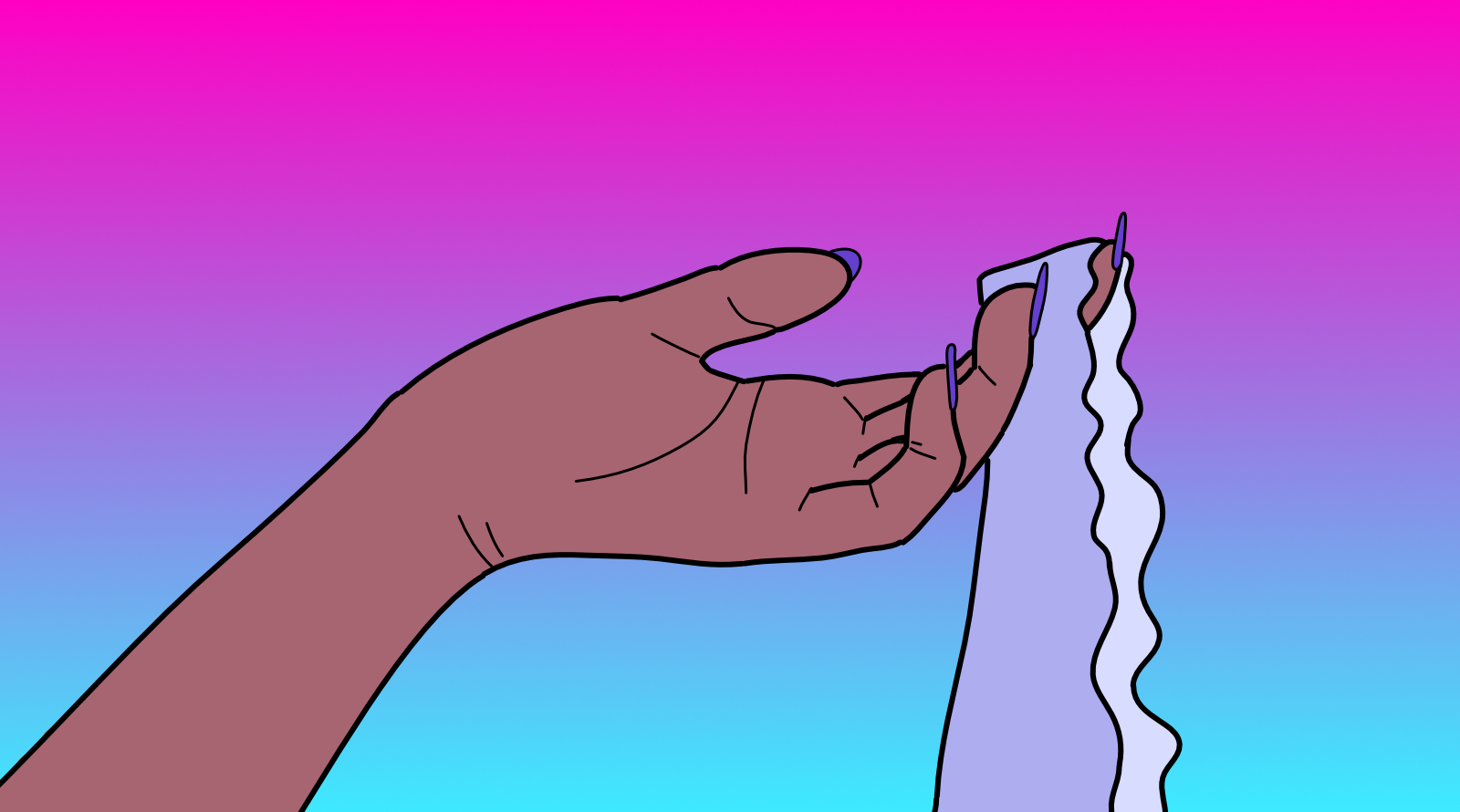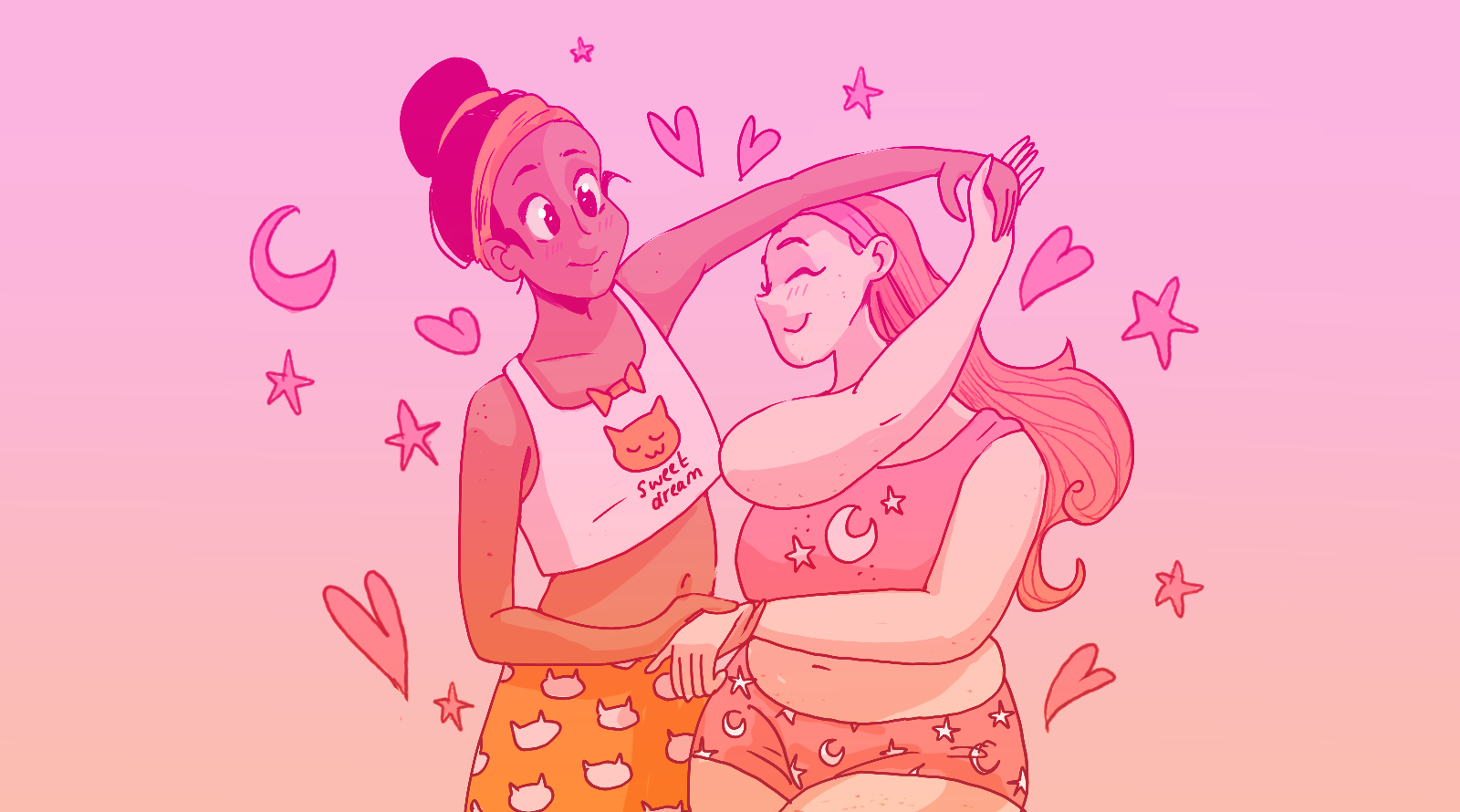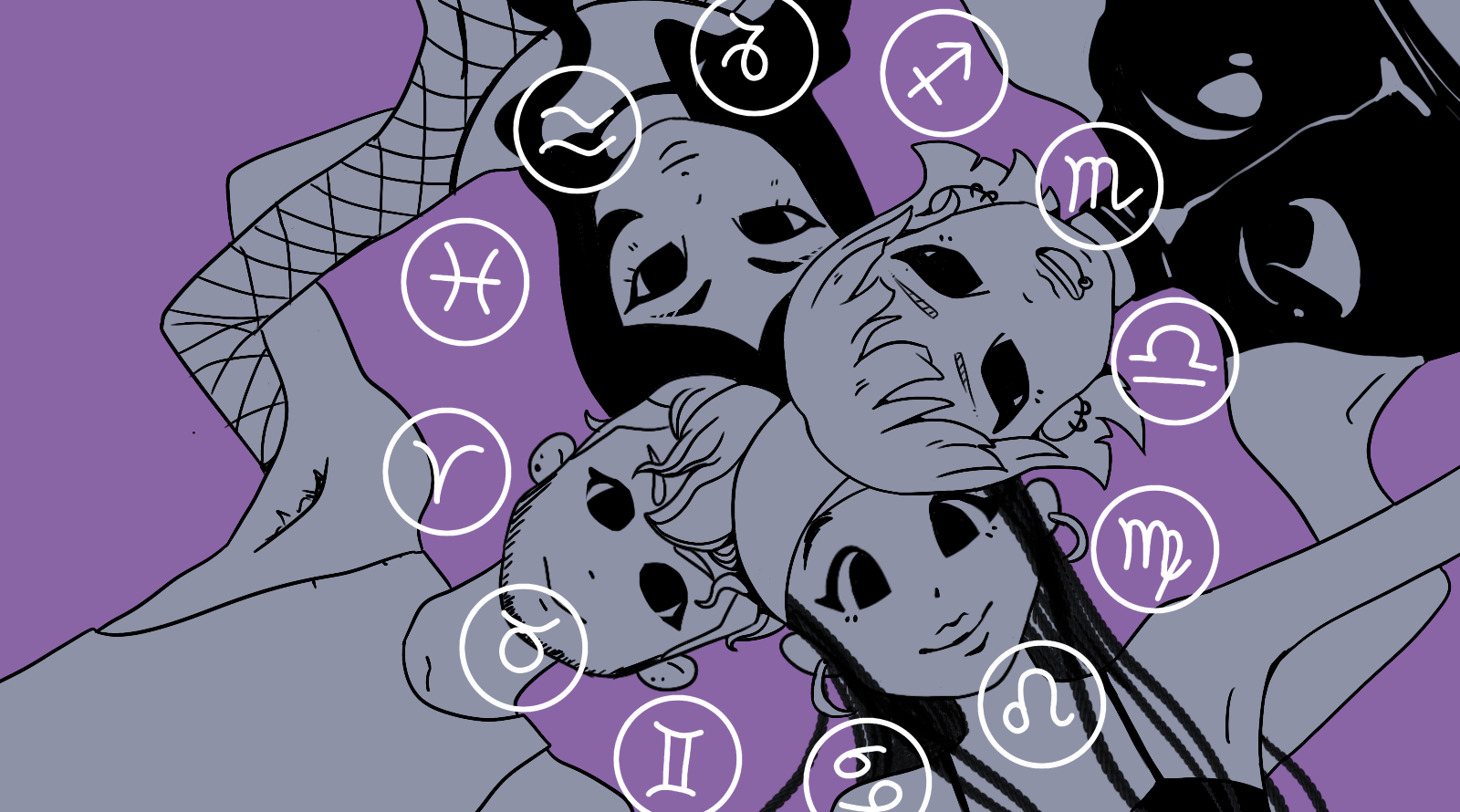A girl from my hometown reached out because she was coming to visit Berlin, we used to take dance classes together when I was living in Italy. She saw from my Instagram that I moved to the German capital and have started stripping. I was happy to see her after such a long time. She asked to come see me at the strip club because now she is taking pole classes.
The club was quiet when she arrived. She looked at the stage.
“Nobody is doing any tricks on the pole.”
I didn’t answer. My turn on stage came, my dance was received with a list of technical names of the tricks I performed, some compliments – and, finally, what she had been waiting to ask.
“Now I take heels classes at the pole studio. I’ve been thinking about working in a strip club. How much money do you make?”
How many times will I have to answer that question?
“Do you have to be fully naked for the private dances?”
“Yes.”
“Oh. Can they touch you?”
“Yes.”
“Oh. I could never do it then. But so cool you are doing it!” Her eyes popped out as she patted my shoulder. I suddenly had the urge to go hustle the group of broke-looking customers in the corner, so I didn’t have the chance to speak to my old friend for the rest of the night. Nor for the rest of her stay in Berlin.
I wish I could say her perception of my job was mislead because she comes from a place lacking conversation around sex work – but I can’t. It’s not only performers from my conservative hometown I had similar conversations with. I have been active in the Berlin performer and sex-positive community for some years now. It’s a vibrant community and I am very thankful we have it. I wouldn’t go back to my conservative hometown even if they paid me in gold bullion. At the same time, I have been working as a creator and producer of performance events that are explicitly sex worker only, and I keep receiving requests from pole dancers, nude models, burlesque performers and artists who do domination at fetish parties to join and take part in these events. The requests come in almost weekly. Navigating the sex-positive community as a sex worker makes me realise there is a need for defining what sex work is, even in the most progressive cities, and to push back on the notion that taking off your clothes for a living makes you a sex worker.
It’s easy to make the mistake; burlesque and pole dance have their roots in sex work, after all. But that was also some time ago. I recognise that no one has ill intentions when they label their performance as sex work: they likely don’t want to create hierarchies between what they do and what we do, to show they don’t stigmatise our work or think they are better than us. It’s also not my intention to establish a competition, an ‘us’ and ‘them’, nor to create any fixed divide. On the contrary, I think collaborations within our communities are beautiful and we can learn so much from each other. At the same time, I believe this distinction is important for building more understanding and awareness around sex work, and for avoiding situations that make us feel uncomfortable and can stray into the offensive.
The term ‘sex work’ was coined at the end of the Seventies by US based sex worker, Carol Leigh, a.k.a. Scarlot Harlot. In her words, “the word ‘prostitute’ was tarnished, to say the least. In fact, ‘prostitute’ is another euphemism... The concept of sex work unites women in the industry – prostitutes, porn actresses and dancers – who are enjoined by both legal and social needs” from “Sex Worker Politics and the Term Sex Work”, by Elena Jeffreys . This then newly coined term wanted to put an emphasis on the work of the provider. Sex work became an umbrella term, one that does not necessarily or exclusively involve sexual intercourse. Any kind of sexual labour and services related to sexuality, even when just fantasies, fit within this definition. Stripping, porn, BDSM work, but also sexual services that do not involve physical contact, like phone sex and camming— are sex work. Keeping Leigh’s words in mind, here are some of the reasons why burlesque, pole dance, performance BDSM etc, for me, are not sex work:
- Sex work and sex workers are negatively affected by laws aiming at regulating it or eradicating it. SESTA/FOSTA, Nordic Model, criminalisation, etc. A comprehensive summary of the legislation around sex work can be found in the book Revolting Prostitutes by Juno Mac and Molly Smith.
- Difference in stigma and discrimination: sex workers are victims of violence, insults, travel restrictions, bans from online platforms like social media and payment processors like Paypal, the list goes on. If you think it’s hard to find a landlord that will sign you a contract for a flat as a freelance performer, imagine how it is when you are working in the sex industry.
- In sex work, the artistic aspect is not in the centre. What’s important is not the performance – neither the getting naked, in my opinion, or at least not always – but it’s catering to a customer’s specific emotional and physical needs.
- Emotional labour is predominant in sex work. The energy exchange is one-sided, there is no audience on your side from the start. Sex workers perform, listen, and temporarily adapt their identity to meet the customer’s needs and make money. At the same time, adapting one’s identity is also a tool for protecting one’s private life and safety.
- In burlesque and performance BDSM, the commercial interaction happens because of the performance, not because of a sexual service. Would you call Miley Cirus a sex worker because she was riding a wrecking ball naked? Would you call Léa Seydoux a sex worker because she acted in a very explicit lesbian scene, in a non-pornographic film?
- Burlesque and Polefit, because of the artistic aspect – costumes and pole classes cost time and money – are not accessible to everyone. Sex work is often the opposite: a relatively lower investment of your time and money, to gain at least some financial security.
As a performer and an ally, one of the things you can do is make sure you avoid appropriation and caricature in your shows. Think pole dancers who are not and have never been strippers. Please leave champagne bottles and dollar-throwing out of your shows. You don’t need to wear our job as a costume, leave them for the strip club. You could also engage with, and develop an understanding for our need for sex-worker-only spaces. And to respect them. It’s not ill-meant, we’re not being mean, we just need places for us. Especially with all the stigma, the discrimination, and the lack of rights, that our identity as sex workers is so important for many of us.
Resources:
- Origin and politics behind the term: https://nswp.org/sites/default/files/Sex%20Worker%20Politics%20and%20the%20Term%20%E2%80%98Sex%20Work%E2%80%99%2C%20Research%20for%20Sex%20Work%2014%20-%20August%202015.pdf
- SESTA/FOSTA: https://decriminalizesex.work/advocacy/sesta-fosta/what-is-sesta-fosta/
- Nordic Model: https://www.hydra-berlin.de/40-jahre-hydra/1212
- Travel restrictions: https://www.nswp.org/resource/nswp-policy-briefs/policy-brief-sex-workers-and-travel-restrictions-
- “Revolting Prostitutes”: https://www.versobooks.com/en-gb/products/548-revolting-prostitutes
Are you a sex worker with a story, opinion, news, or tips to share? We'd love to hear from you!
We started the tryst.link sex worker blog to help amplify those who aren't handed the mic and bring attention to the issues ya'll care about the most. Got a tale to tell? 👇☂️✨





